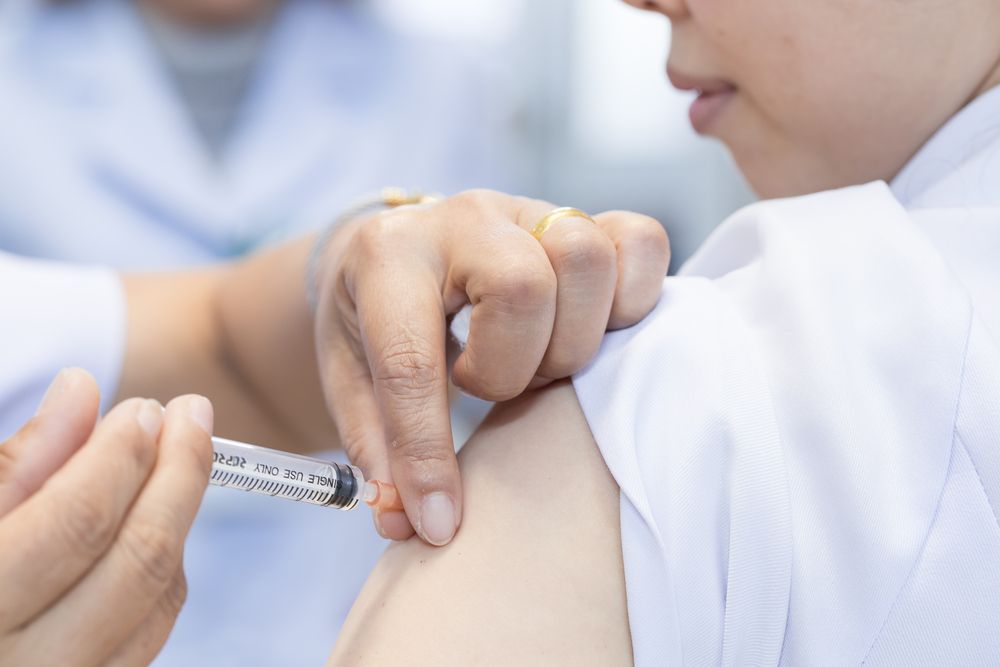Educator vaccination status a growing concern
Published on Tuesday, 16 July 2019
Last updated on Tuesday, 31 December 2019

Globally we're amidst a measles epidemic with the World Health Organisation (WHO) reporting a whopping 300 per cent increase in the number of cases worldwide in the first three months of 2019, compared to the same period last year.
What's most alarming is that countries like New Zealand, where vaccination levels are high, have seen recent spikes in measles outbreaks. The culprit is thought to be clusters of unvaccinated people spreading the highly infectious disease, something that has put the immunisation status of early childhood educators under the spotlight.
Understanding the measles virus
Measles is a contagious viral disease causing a blotchy red rash as well as a fever, runny nose, and other symptoms of being generally unwell for about a week or two. In extreme cases, it can cause complications such as seizures, pneumonia, brain damage, and death, which is why it's important that everyone is vaccinated.
In New Zealand, children are typically vaccinated from around 12 months and then again at age four. Two doses of the vaccine are needed and the only people who can't be immunised are very young babies, pregnant women, and those with cancer or other immunodeficiency condition. They are therefore the most vulnerable to contracting measles and also at risk of severe complications if they contract the illness, for example children with leukaemia who contract measles have a high fatality rate, and pregnant women are more likely to have a miscarriage, premature labour, or low birth weight for their baby.
The only solution for helping protect those most at risk as well as everyone else in the community, is to ensure that anyone who is eligible to be vaccinated does so. By adopting this "herd immunity" approach it greatly lessens the chances of the virus spreading. Given the vaccination is free to anyone born in or after 1969, its time to put a stop to these outbreaks for good.
Vaccinations and early childhood educators
While it's mandatory for early childhood providers to keep an immunisation register with certificate records for all children in their service, the same does not apply for educators or other adults who regularly come into contact with the children in care.
Not surprisingly, this has created a great deal of concern from parents, with preschools and early learning centres now being urged to be both more aware and also transparent when it comes to the vaccination status of their staff.
Visiting educators and students from foreign countries tend to be the biggest concern that parents have, yet carers who spend a lot of time with large groups of children are also at risk of contracting measles themselves and then passing it on to the wider community. Pregnant staff members are particularly vulnerable.
Early childhood centres are required to do everything in their power to look after the health and wellbeing of the children under their care and their staff though, which includes helping prevent the spread of illness and disease. The only way to do this is to be diligent about staff being vaccinated, ensure parents are aware of the immunisation status of all educators, instil good hygiene and health practices, and continue to educate and inform parents and staff about measles and why vaccine prevention is so important.
Advice for early childhood centre owners and educators
To avoid worries and concerns from parents and staff members, and ensure your service is doing what it can to prevent the measles epidemic spreading, here are a few suggested approaches:
- Ensure all staff members are vaccinated – If you are unsure, do an audit to find out if there is anyone in your service who isn't immunised against measles – including non-educators such as gardeners. For those who aren't or don't know, give them time off to visit the doctor and confirm their vaccination status or get immunised.
- Put parents and staff at ease – Send out notices confirming all educators and other staff members are vaccinated against measles, or when this will be rectified if they're not.
- Stop illness spreading – Encourage children and staff to cover their mouths when coughing, use tissues when sneezing, wash hands regularly and ensure the premises and all surfaces are cleaned regularly.
- Keep sick people home – Ask parents to keep unwell children at home and encourage staff to do the same. The symptoms of measles begin with fevers, coughs and runny noses so you never know when something resembling a cold could actually be something worse.
- Handle an outbreak effectively – If there is an incident of measles in your centre inform all parents and staff. It's also important to advise those most at risk (such as pregnant educators, children and staff with low immunity, young babies, and children who have only had one dose of the vaccination) to stay at home.
- Continue to educate and inform – Have posters about measles and vaccinations up in your centre, issue outbreak reports and information in newsletters, and ensure staff know how to spot the signs of measles and understand why prevention is so important.
Related Articles

Vaccination Rules for Child Care and the National Immunisation Schedule
How vaccination rules apply in child care and how the government encourages families to immunise.

How to protect your back
Sating safe at work. according to Science Direct, early childhood education and care staff may contribute to 7 per cent of all reported workplace injuries.

Stress management strategies for early childhood professionals
Stress management strategies for early childhood educators, to boost wellbeing and avoid burnout.
